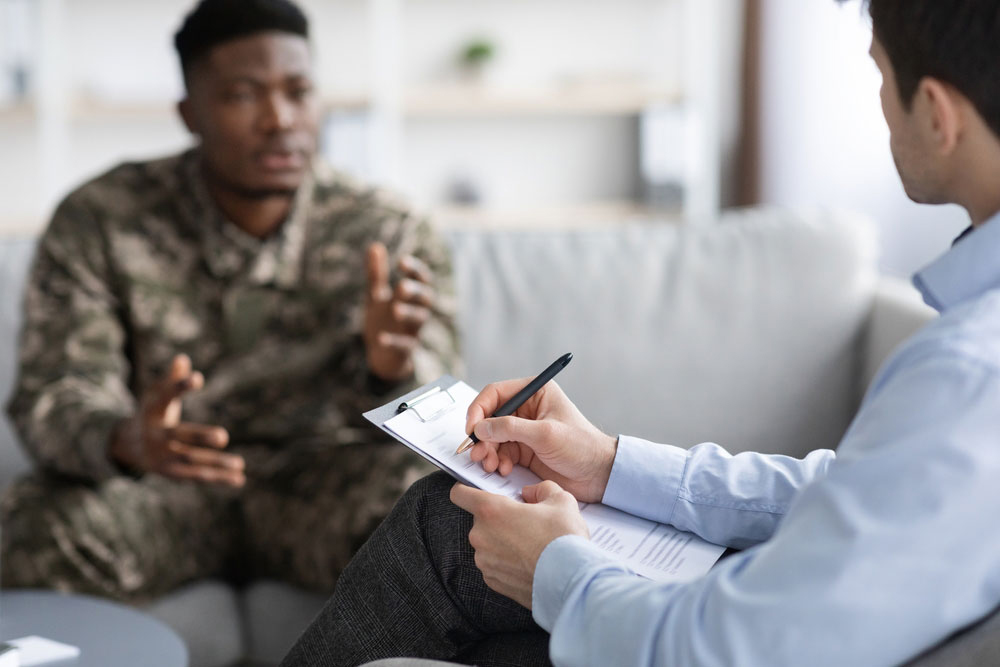Memorial Day is a chance to reflect on the sacrifices made by our military service members and the continuing struggles facing these brave men and women after returning to civilian life. Post-traumatic stress disorder is a prevalent issue among veterans, stemming from experiences such as combat exposure, military sexual trauma, and the emotional toll of extended deployments away from loved ones. Unfortunately, the stigma surrounding mental health and the rigid cultural expectations within the armed forces often deter veterans from seeking the help they need.
Leading Symptoms of PTSD
PTSD occurs at a significantly higher rate in the military veteran population than in civilians, largely due to the intense and often life-threatening nature of their careers.
- Flashbacks: Recurring, involuntary, and vivid memories of traumatic events can arrive unexpectedly, forcing you to relive your trauma.
- Avoidance: Veterans with PTSD may avoid places, people, and activities that remind them of what they went through, adversely affecting their social interactions and close relationships.
- Negative changes in thinking and mood: These include feelings of hopelessness, pessimistic thoughts about yourself or others, memory problems, and difficulty maintaining close relationships.
- Hyperarousal and reactivity: This symptom manifests as startling easily, feeling tense and edgy, having trouble sleeping or relaxing, and exhibiting angry outbursts.
- Increased anxiety or emotional numbness: Veterans might experience heightened anxiety or may become numb to shield themselves from painful feelings.
How PTSD Treatment Can Save Lives
The stigma associated with mental health issues prevents many veterans from seeking treatment. Military culture often values stoicism and resilience, making it difficult for current and former service members to admit they need help. Breaking this stigma is crucial; it involves changing perceptions to understand that asking for support is a sign of strength, not weakness.
Effective PTSD treatments like these can make your post-service life feel more meaningful and fulfilling.
- Trauma-focused psychotherapies: These are the most highly recommended PTSD treatment techniques. They involve focusing on the memory of the traumatic event or its meaning. Techniques such as cognitive processing therapy, prolonged exposure therapy, and eye movement desensitization and reprocessing have proven effective.
- Medication: Your PTSD may respond well to prescription antidepressants.
- Support groups: Participating in veteran support groups where you can share your experiences and learn new coping strategies can be incredibly beneficial.
The Value of a Faith-Based Approach
Faith can also be a cornerstone of effective PTSD treatment for veterans who believe in the power of God’s love and redemption. At Celebrate Hope, we integrate Christian principles with evidence-based therapies, providing a holistic approach to healing. Spiritual counseling, prayer, and community support can offer powerful solace and a renewed sense of purpose.
This Memorial Day, as we honor those who have served our country, let’s also commit to supporting our veterans in every aspect of their lives, especially those struggling with PTSD. You can encourage a loved one to seek help and transition to a peaceful civilian life by recognizing the symptoms and advocating for mental health awareness. Contact us to learn more about Christian-based counseling in Orange County.

